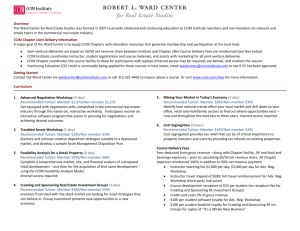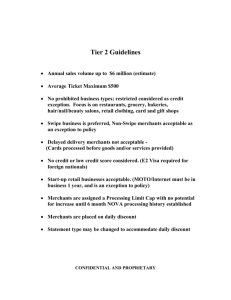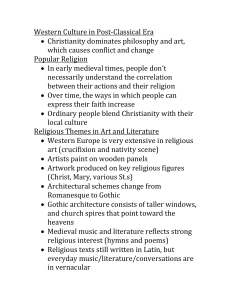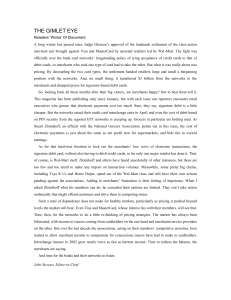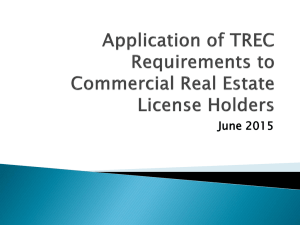CCIM Institute's statement of policy
advertisement
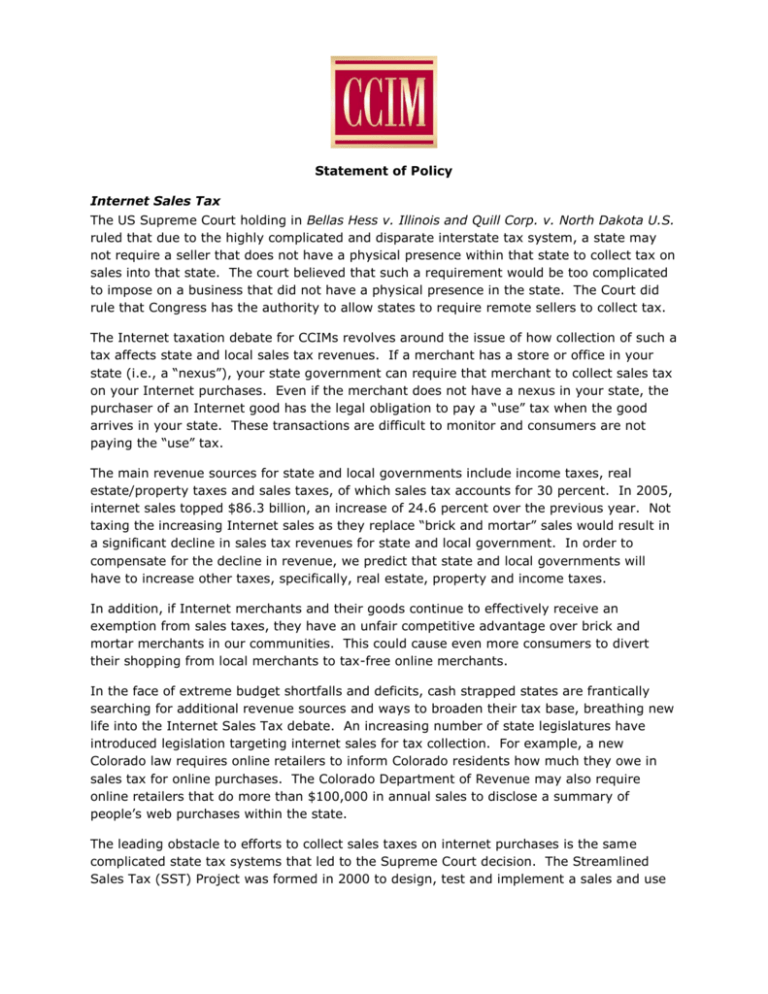
Statement of Policy Internet Sales Tax The US Supreme Court holding in Bellas Hess v. Illinois and Quill Corp. v. North Dakota U.S. ruled that due to the highly complicated and disparate interstate tax system, a state may not require a seller that does not have a physical presence within that state to collect tax on sales into that state. The court believed that such a requirement would be too complicated to impose on a business that did not have a physical presence in the state. The Court did rule that Congress has the authority to allow states to require remote sellers to collect tax. The Internet taxation debate for CCIMs revolves around the issue of how collection of such a tax affects state and local sales tax revenues. If a merchant has a store or office in your state (i.e., a “nexus”), your state government can require that merchant to collect sales tax on your Internet purchases. Even if the merchant does not have a nexus in your state, the purchaser of an Internet good has the legal obligation to pay a “use” tax when the good arrives in your state. These transactions are difficult to monitor and consumers are not paying the “use” tax. The main revenue sources for state and local governments include income taxes, real estate/property taxes and sales taxes, of which sales tax accounts for 30 percent. In 2005, internet sales topped $86.3 billion, an increase of 24.6 percent over the previous year. Not taxing the increasing Internet sales as they replace “brick and mortar” sales would result in a significant decline in sales tax revenues for state and local government. In order to compensate for the decline in revenue, we predict that state and local governments will have to increase other taxes, specifically, real estate, property and income taxes. In addition, if Internet merchants and their goods continue to effectively receive an exemption from sales taxes, they have an unfair competitive advantage over brick and mortar merchants in our communities. This could cause even more consumers to divert their shopping from local merchants to tax-free online merchants. In the face of extreme budget shortfalls and deficits, cash strapped states are frantically searching for additional revenue sources and ways to broaden their tax base, breathing new life into the Internet Sales Tax debate. An increasing number of state legislatures have introduced legislation targeting internet sales for tax collection. For example, a new Colorado law requires online retailers to inform Colorado residents how much they owe in sales tax for online purchases. The Colorado Department of Revenue may also require online retailers that do more than $100,000 in annual sales to disclose a summary of people’s web purchases within the state. The leading obstacle to efforts to collect sales taxes on internet purchases is the same complicated state tax systems that led to the Supreme Court decision. The Streamlined Sales Tax (SST) Project was formed in 2000 to design, test and implement a sales and use tax system that radically simplifies sales and use taxes. Project participants include state revenue department administrators, state legislators, local governments, national retailers, trade associations, and other representatives from the business community. In 2002, the Project drafted provisions for the Streamlined Sales and Use Tax Agreement. Current membership includes 20 Full Members and 3 Associate Members. Position Statement The CCIM Institute believes that economically equivalent transactions should bring similar tax consequences, and supports a level playing field for local in-store retailers and remote merchants (including Internet merchants). The CCIM Institute believes that loss of revenue due to failure to collect sales tax on goods sold over the Internet is likely to place pressure on state and local governments to find replacement revenue in the form of increased, real estate and property taxes, income taxes, transfer taxes and/or impact fees. The CCIM Institute is also concerned that the erosion of state and local sales tax collections will encourage state and local governments to seek to expand their sales and use tax bases. In this regard, the CCIM Institute is firmly opposed to any expansion that would impose taxes on the cost of services, such as fees and other costs associated with the purchase and ownership of real estate. The CCIM Institute supports efforts to simplify the collection and payment of state/local sales/use taxes. State and local governments should be able to enforce existing sales and use tax laws for both intra-state and inter-state purchases. In order to establish an effective and simple means of collecting of these taxes, state and local governments first must simplify their existing state and local sales and use tax systems. The CCIM Institute believes the key issues associated with the Internet Tax debate affect state and local government revenues. Accordingly, we believe state and local legislative action is appropriate, and we encourage state legislative action that would provide consistent sales tax consequences for economically equivalent transactions and simplify state/local sales/use taxes. We do not support Federal legislation that – without consent and participation of state governments – would preempt states' efforts to address their own sales and use tax issues consistent with this statement of policy. (6/00; updated 10/06, 04/10)
